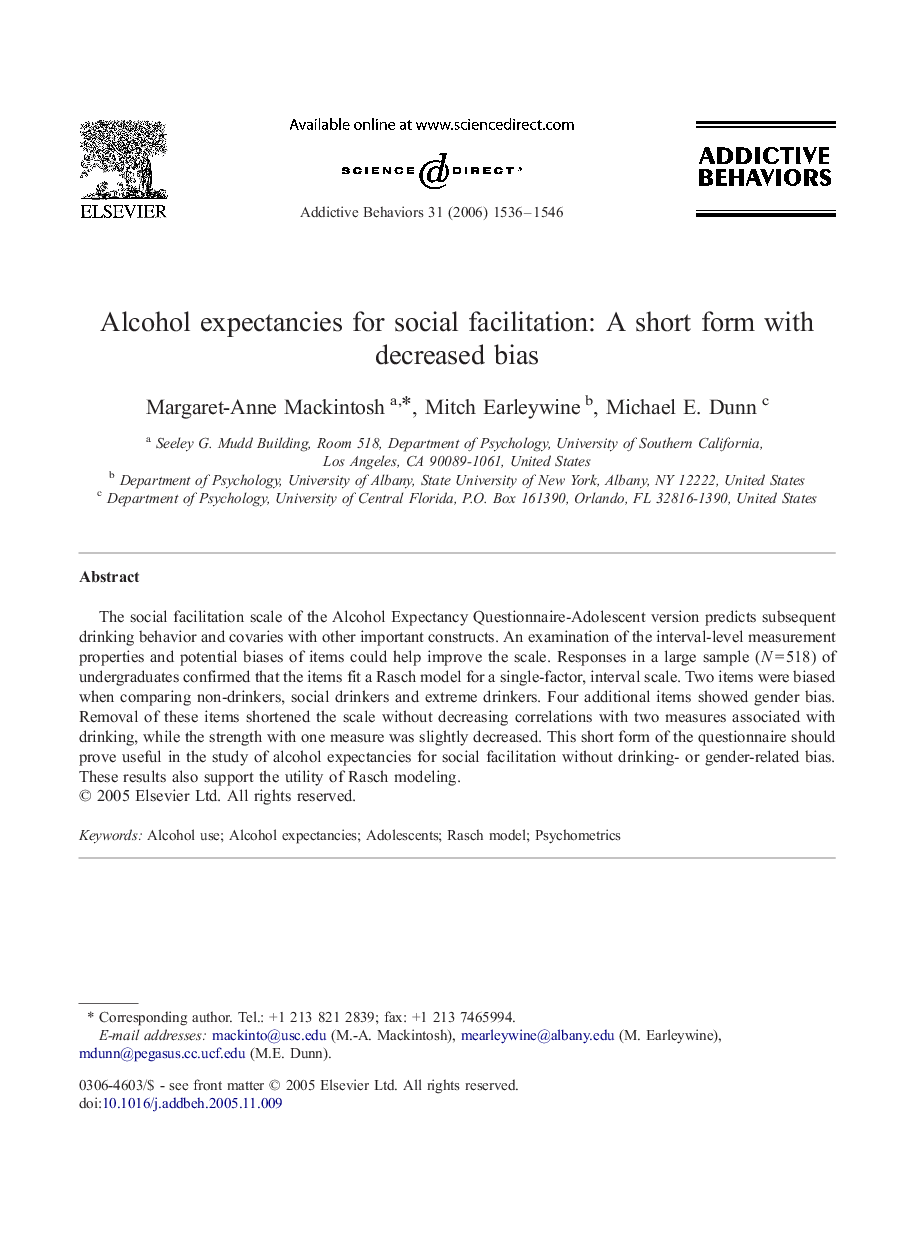| Article ID | Journal | Published Year | Pages | File Type |
|---|---|---|---|---|
| 899898 | Addictive Behaviors | 2006 | 11 Pages |
The social facilitation scale of the Alcohol Expectancy Questionnaire-Adolescent version predicts subsequent drinking behavior and covaries with other important constructs. An examination of the interval-level measurement properties and potential biases of items could help improve the scale. Responses in a large sample (N = 518) of undergraduates confirmed that the items fit a Rasch model for a single-factor, interval scale. Two items were biased when comparing non-drinkers, social drinkers and extreme drinkers. Four additional items showed gender bias. Removal of these items shortened the scale without decreasing correlations with two measures associated with drinking, while the strength with one measure was slightly decreased. This short form of the questionnaire should prove useful in the study of alcohol expectancies for social facilitation without drinking- or gender-related bias. These results also support the utility of Rasch modeling.
